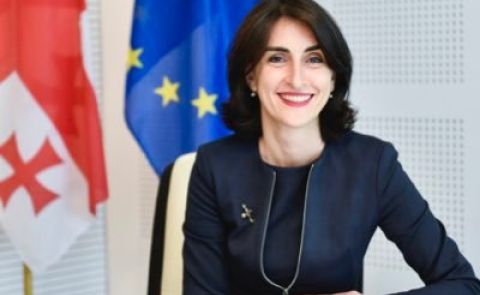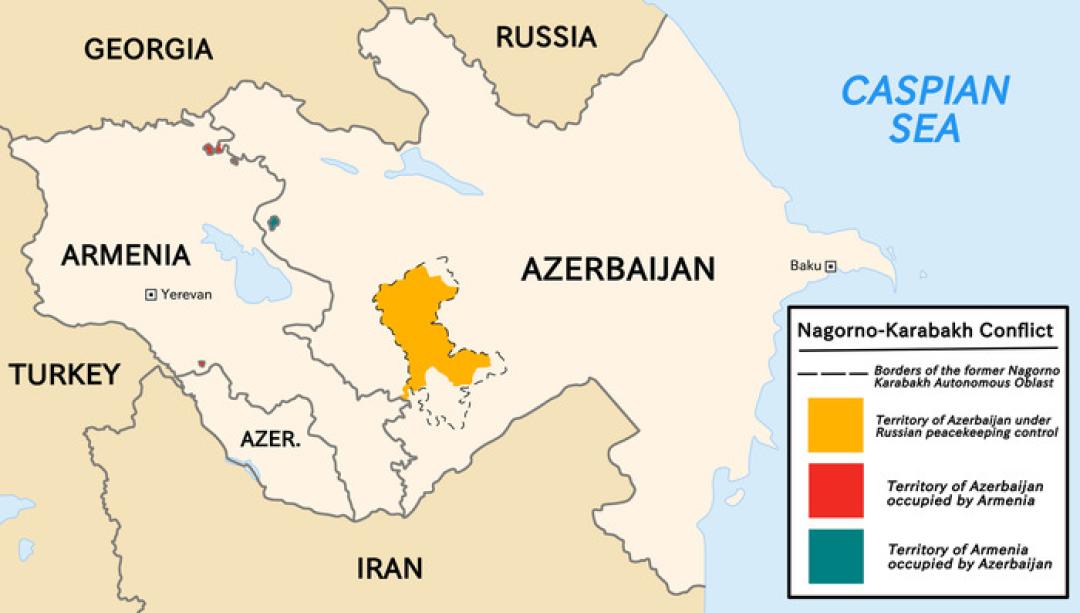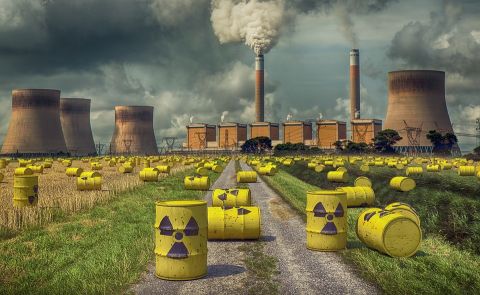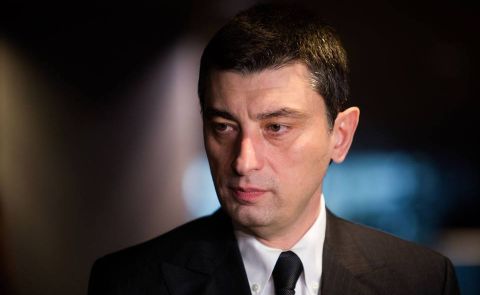
Recent developments Regarding Protest Along Lachin Corridor

On January 24, de-facto Nagorno-Karabakh authorities reported blackouts to occur three times per day for 2 hours amid the ongoing humanitarian and energy crisis.
On the same day, increasing unemployment was reported in Nagorno Karabakh as local businesses closed due to a lack of trade and energy (electricity, natural gas, internet interruptions), adding to more dependence on humanitarian aid from the outside amid Azerbaijan's blockade.
On January 23, Armenian Defense Minister Suren Papikyan received Toivo Klaar, the EU Special Representative for the South Caucasus, and the crisis in Georgia, the Press Service of the Armenian Defense Ministry reported. Ambassador Andrea Wiktorin, the Head of the EU Delegation to Armenia, also attended the meeting. Klaar expressed concern over the situation around the Lachin corridor. The sides discussed recent regional developments and hoped the EU Foreign Relations Committee meeting would approve the dispatch of a new EU civilian observer mission to Armenia's border with Azerbaijan.
On the same day, Prime Minister Nikol Pashinyan received Toivo Klaar, the Press Office of the Armenian Prime Minister reported. "The decision to deploy the new civilian mission of the European Union on the Armenian-Azerbaijani border was highlighted, which will contribute to stability and security in the region. Reference was also made to the humanitarian crisis in Nagorno-Karabakh caused by blocking the Lachin Corridor. Toivo Klaar expressed concern over blocking the Lachin Corridor and stressed the need for the uninterrupted operation of the corridor. He noted that the EU is interested in ensuring stability and peace in the region and will continue to contribute to the solution of this problem," the report added.
On January 25, de-facto Nagorno Karabakh's National Security Services reported that Azerbaijani intelligence was disseminating a fake document calling for the evacuation of the de-facto capital Stepanakert [Khankendi in Azerbaijani] on February 1 in the form of a decree by the city's city hall.
On the same day, Foreign Minister of Armenia Ararat Mirzoyan, who was in Brussels on a working visit, had a meeting with Toivo Klaar, the Special Representative for the South Caucasus and the crisis in Georgia, and Magdalena Grono, the Senior Foreign Policy Advisor to the President of the European Council. "The sides highlighted the decision to deploy a new EU civilian monitoring mission in Armenia, noting that it will contribute to ensuring security and stability in the region. The situation resulting from Azerbaijan’s illegal blockade of the Lachin Corridor was discussed. The Foreign Minister of Armenia emphasized that Azerbaijan’s actions and rhetoric undermine Armenia’s efforts to establish peace in the South Caucasus," the report added.
On January 26, Russia's Peacekeeping Contingent in the separatist Nagorno-Karabakh reported that two columns of vehicles, one from Goris and another from Erebuni Airbase in Armenia, transported humanitarian aid to the region. Also, Russian Air force AN-148AE conducted two flights from Makhachkala to Erebuni Airbase and back. These aircraft can carry a maximum of around 10 tons of cargo.
On the same day, Nagorno-Karabakh authorities reported the resumption of gas supply to the capital. However, supply to villages in provinces is cut off due to distribution problems. Petrol stations supply natural gas for cars to remain to supply them. Moreover, wood stoves will be provided to residents in Nagorno-Karabakh due to continued gas and electricity problems.
On January 26, French Interior Minister Gérald Darmanin said at a dinner with the Coordinating Council of Armenian Organizations in France (CCAF) that the opponents of Armenia are the opponents of France. Jonathan Lacôte, the former Ambassador of the Fifth Republic in Yerevan, announced this on Twitter.
On January 27, de-facto Nagorno-Karabakh authorities reported 346 m² of firewood distributed to 135 families and 26 woodstoves amid the growing humanitarian crisis, electricity blackouts, and gas interruptions.
On the same day, commenting on the situation around the Lachin corridor during a briefing for journalists, the official representative of the Russian Foreign Ministry Maria Zakharova said that Russia, unlike other external players, is trying to resolve the situation in Nagorno-Karabakh on the ground. "The Ministry of Defense and the command of the Russian peacekeeping contingent, in cooperation with the Russian Foreign Ministry, are in constant contact with all interested parties," the Foreign Ministry noted. "We believe that periodically arising complications on the ground should not become an obstacle, a reason for some kind of freezing of the negotiation process. It is necessary to somehow resume work on all tracks for normalization, including the unblocking of transport communications, the delimitation of the border, the conclusion of a peace treaty, and contacts through civil society," Zakharova added.
On January 28, Nagorno-Karabakh authorities reported Azerbaijan's complete interruption of natural gas supply.
Discussions in the Parliamentary Assembly of the Council of Europe
The situation in the Lachin corridor was discussed at the winter session of the Parliamentary Assembly of the Council of Europe (PACE). In the discussions held based on the debate procedure on current issues, PACE MP Pierre-Alain Fridez informed the Assembly about the issue and voiced the positions and versions of Azerbaijan and Armenia on the incident. He stressed that the goal is normalizing the situation without leading to a humanitarian crisis.
"The decision is of the Azerbaijani authorities. It would be good if they prove the falsehood of the allegations made without delay, not only with words but with the observations of the international mission team on the ground. For this, it would be ideal to allow PACE co-rapporteurs from both countries to visit the area," Pierre-Alain Fridez said.
The Azerbaijani side was called to consider the calls of the US State Department and the international community, as well as the resolution of the European Parliament dated December 19 on the issue, to restore free movement in the Lachin corridor.
Ruben Rubinyan, the head of Armenia's Delegation to PACE, said Azerbaijan had closed the Lachin Corridor, failing to fulfill its obligations from the November 9 declaration. "The road has been closed for 46 days. There is also no gas and electricity because Azerbaijan has cut the lines," Rubinyan stressed. Armenian delegation accused Azerbaijan of carrying out a policy of ethnic cleansing.
The Azerbaijani MPs said that the claims about the closure of the Lachin road are false and biased and that the corridor is open for civilians and humanitarian goods. "There is no humanitarian disaster in Karabakh, and there is no risk of it happening in the future for a simple reason. The road is open. Trucks travel back and forth through the corridor every day. Azerbaijan provides food, medicine, pharmaceuticals, and all opportunities for civilians," said Nigar Arpadarai, a member of the Milli Majlis. She also noted that the sooner the Armenian side sits at the peace table, the better it will be for both sides.
The PACE members who spoke expressed concern that a humanitarian crisis may arise and regional tensions will increase again. The parliamentarians called on both parties to return to the negotiating table and resolve the issue through dialogue.
See Also


Pashinyan: “We Are Not Seeking to End Russian Troop Presence in Armenia”

Russia Begins 24/7 Radiation Monitoring in Dagestan After Iranian Nuclear Incident

How Do Caucasus States React to Israel-Iran War?

Weekly Brief on Military Situation in the South Caucasus (9–15 June 2025)

